What and how to water carrots for growth?
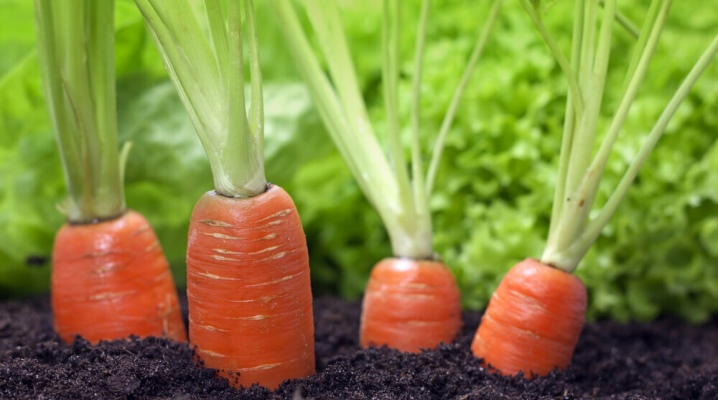
Carrots are an unpretentious crop. Many summer residents grow it. In order for carrots to grow well, they must be properly watered with suitable formulations. In this article, we will figure out what kind of watering means we are talking about.
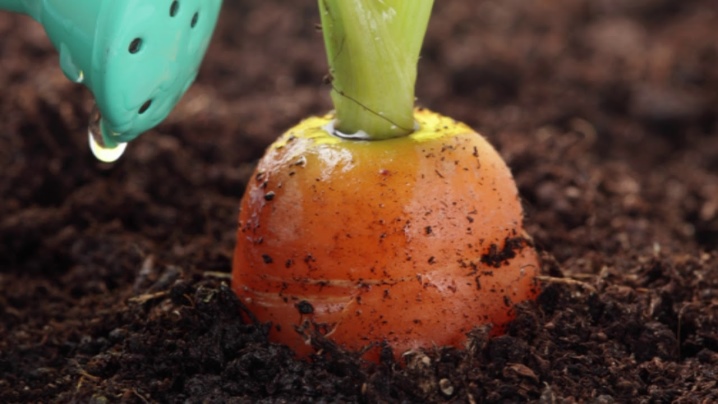
Useful material
Outdoor carrots require certain nutrients and components. With their lack, you can not count on good growth of root crops. In order to ensure the normal development of the vegetable plantings in question, they require the following useful elements.
- Nitrogen fertilizers, acting on carrots, are able to increase the percentage of protein and carotene content in it. It makes sense to use such compositions in the early days of the summer season, when the growth of greenery is especially active. If there is not enough nitrogen, the tops will quickly turn yellow, and the fruits will become small, dried out.
- Phosphate fertilizers give vegetables a sweetness, make the core harder. Especially carrots need such feeding during hot seasons (mid-summer). If the specified trace element is not enough, the green part of the vegetable will turn yellow and wither, and the fruits themselves will stretch out and lose their good taste.
- Due to the action of potassium, carrots acquire a more delicate taste. It can increase immunity to many diseases. Potassium supplement is best added during the entire growth of the root crop.
- Boron promotes the formation of juicy and sufficiently sweet root crops. It can also strengthen planted crops. If there is not enough boron, pollination is noticeably impaired. The growth of plantings is greatly slowed down, the root crop acquires an elongated structure, and also becomes thin. It is best to treat vegetables with boric acid during the second feeding.
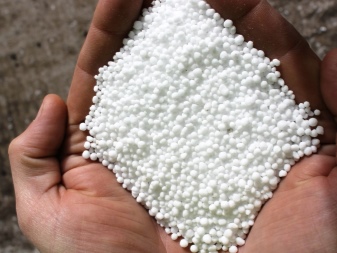
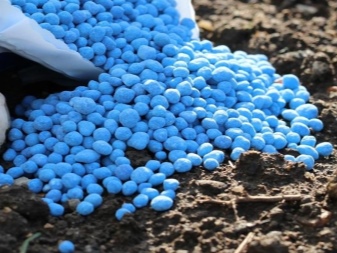
Terms of introduction
If you want to properly and effectively feed carrots in your garden, then it is very important for you to comply with the timing of the application of the selected fertilizers.
Consider when exactly you need to fertilize this unpretentious crop.
- The first top dressing should be applied immediately after the completion of the stage of thinning the beds in the city. At this point, a few small leaves should have broken through. You can use a mixture that contains potassium magnesia, superphosphate, urea. All of these ingredients are diluted in 10 liters of water.
- It is advisable to add the second dressing 2.5 weeks after the previous one. In this case, you can add ash or buy ready-made fertilizer in the store.
- The third top dressing is applied in the summer (in June, July). It is during this season that the root crop is most actively gaining the necessary strength. During this time, fertilizers are mainly added to increase the sugar content.
- Lastly, the planted carrots should be fertilized one month before the expected harvest. Final feeding is required to reduce the nitrate content in root crops. Most often, at this time, a solution of potassium sulfate or chloride is used, coupled with wood ash.
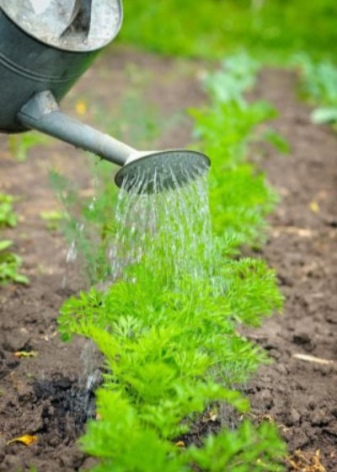
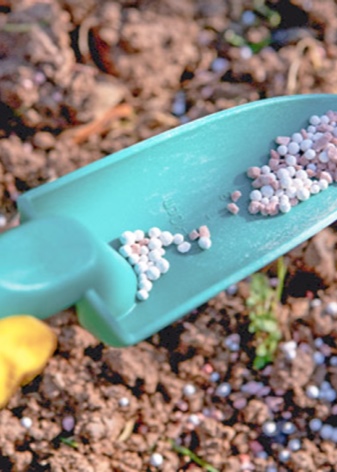
Recipes
There are many popular recipes that gardeners use to grow large and juicy carrots on their plots. Most of the fertilizers that can be used to water root crops are prepared very simply and quickly. You don't need to buy expensive or rare ingredients for this. Consider a few popular recipes.
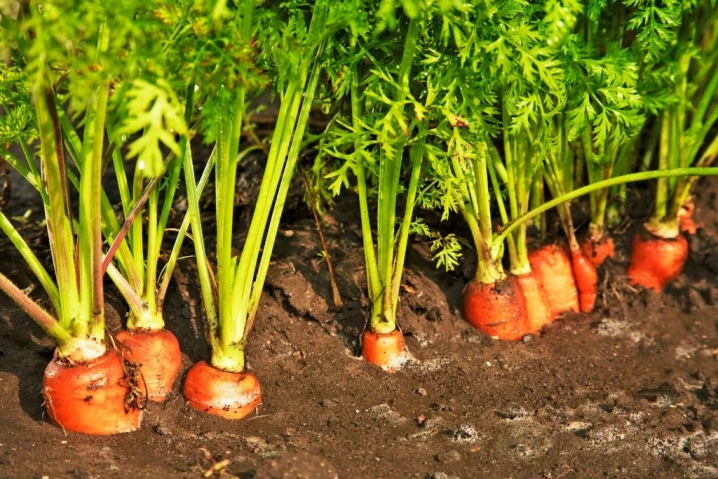
To make carrots grow faster and grow larger and more juicy, you can make an excellent yeast fertilizer. The yeast works either dry or raw. Let's take a look at how to make a healthy raw yeast formula.
- You will need to dissolve 1 kg of yeast in 5 kg of warm water. The composition will need to be left to infuse for just a couple of hours.
- Next, the liquid will need to be re-diluted in 5 buckets of water.
Dry yeast is also allowed. Consider a recipe for preparing an effective top dressing with such a component.
- You should take 100 g of dry yeast granules, as well as 2 tbsp. l. granulated sugar. These components are dissolved in 10 liters of warm water. The mixture will need to be left like this for 2 days.
- Then the resulting mixture will need to be diluted in 50 liters of water, after which you can safely proceed to watering the carrots.
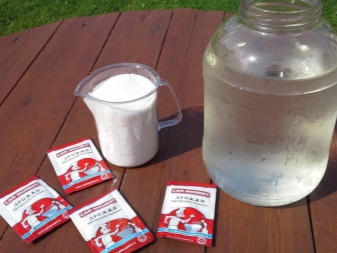
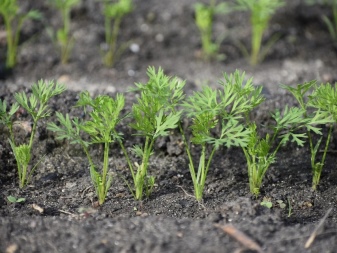
Herbal infusions also contribute to the rapid growth of root crops. They are also easy to cook at home.
- You need to prepare a bucket. It should be filled with a slice of nettle or other weeds by 1/3.
- The next step is to pour water into the bucket to the brim. The container must be covered with a lid, and then left to ferment for 1-2 weeks.
- As soon as the fermentation process is completed, the tincture will need to be diluted in a ratio of 1 to 10. Then you can water the carrot plantings with the composition.
A good composition will be obtained with the addition of ash.
- First you need to take a container. The volume can be anything. It is filled to the brim with chopped nettle branches, 4-5 glasses of ash are added, as well as 100 g of yeast.
- The listed components are poured with cold water. The mixture will need to be infused for 5 days. The ready-made solution should be used as follows: dilute 1 liter of the product in 10 liters of water, and then pour it under each carrot root.
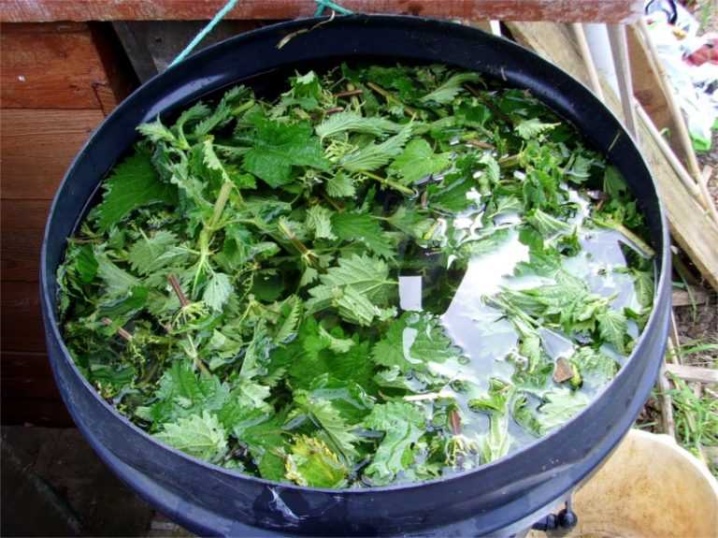
Homemade carrot feeds have shown very good performance. That is why homemade fertilizers are so popular among summer residents.
How to feed?
It is very important not only to properly prepare the top dressing for the growth of carrots. It is equally important to make it correctly so as not to harm the root crops. Let's figure out how exactly it is required to feed an unpretentious culture by root and foliar methods.
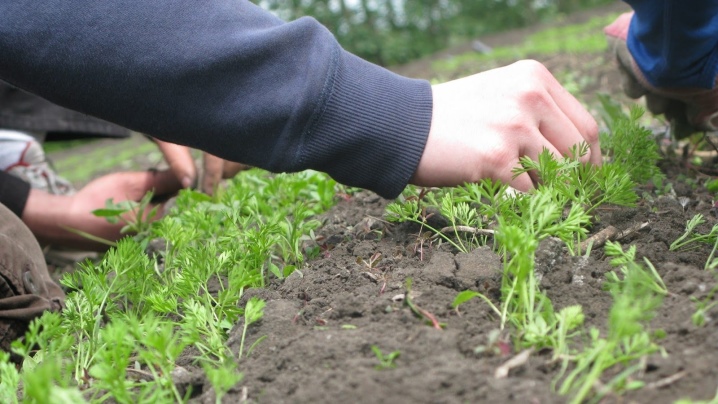
Root dressing
Root dressings should be predominantly liquid. They need to shed aisles.
- For starting top dressing, the following combination is suitable: 150 g of mineral fertilizers per 1 sq. m. Of these, there should be 40 g of phosphorus, 60 g of potassium and 50 g of nitrogen.
- The next feeding will be needed after 2-3 weeks. This will be necessary to support more active growth of vegetables. Ammonium nitrate in a volume of 20 g, superphosphate, as well as potassium chloride (30 g) are suitable for such purposes.
- When shoots appear, after a month they are spilled with a mixture of nitroammophoska or nitrophoska. The ratio should be 1 tbsp. l. 10 liters of water. The introduction of these funds will need to be repeated after 2-3 weeks at the rate of 7 liters per 1 sq. m.
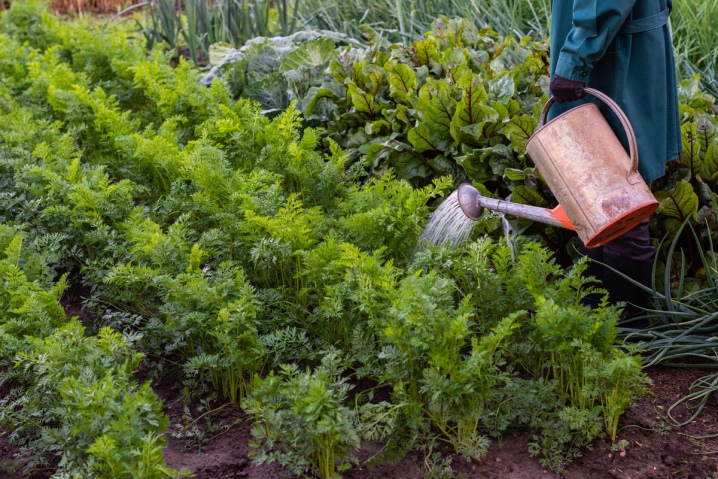
Foliar dressing
To accelerate the growth of carrots, you can also use foliar feeding. Many of the effective means and preparations are suitable for both such fertilization and root application.
Let's understand the main features of foliar fertilization of carrot plantings.
- If the goal of a tangible increase in the sweetness of the carrot is pursued, it is advisable to treat the tops with a solution of humates.
- Magnesium sulfate can be used to effectively process vegetables when magnesium is deficient.
- To give the tops of sufficient strength and fluffiness, it is advisable to resort to spraying with urea at the very beginning of its growth.

Before planting seeds in open ground, it is best to properly process them. To do this, they are soaked in specialized formulations. For example, such a simple recipe is suitable for these purposes: 1 g of potassium permanganate must be dissolved in 1 liter of warm water, as well as 2.5 ml of any fertilizer in liquid form.
General recommendations
By cultivating carrots, you can easily achieve more accelerated growth. To do this, use different means, from purchased to prepared independently. If you decide to water your roots with effective formulations, it makes sense to arm yourself with some useful tips.
- If carrots are grown in acidic soils, it is recommended to use ash top dressing. Such compositions can increase the level of alkali in the soil.
- In no case should you treat the beds with planted carrots with fresh manure. In this case, the amount of organic matter will turn out to be too large, due to which the planting growth point is "burned". After that, the roots of the vegetables bifurcate. As a result, carrots grow unpalatable.
- Home dressings can be used not only as useful fertilizers, but also as prophylactic agents against various parasites that can seriously harm root crops.
- If you want the roots to germinate as quickly as possible, you cannot apply too much fertilizer. If there is an excess of them, then the taste of carrots will not be the best. In addition, this will negatively affect the shelf life of root crops.
- Liquid dressings must be applied so that they do not fall on the foliage. This is especially true for treatments during hot weather. This can lead to leaf burns.
- Carrots can be processed not only with folk remedies, but also with various chemicals. The most effective of them are "Agricole", "Kemira Universal" and the like.
- If you use ash to process carrots, it is important to remember that it reduces the absorption of phosphates by plants. For this reason, the indicated element should be introduced at the very beginning separately from fertilizing containing phosphorus.
- Foliar treatment of carrots with ordinary iodine demonstrates very high efficiency. You can feed vegetables with this component immediately after germination. To do this, you will need to mix 15-20 drops of iodine with a bucket of water. It is recommended to water the carrot beds with the ready-made composition in the mornings and evenings. In this case, there should be no scorching sun.
- If you fertilize carrots incorrectly and with the wrong means, this can lead to the fact that the root crops will crack. In addition, such root crops will be susceptible to various diseases or pest attacks.
- 1 week before the planned sowing of carrot seeds in the ground, the land on the site is watered with warm water, and then covered with a piece of film. This must be done so that under the film the earth has time to warm up to the required temperature indicators.
- If the carrot grows very poorly, you can use a complex remedy, such as "Kristallon" or "Kemira". First, they are bred in a ratio of 1 tsp. per 10 liters of water, and with the next feeding, the volume increases by 1.5-2 times.
- It is necessary to constantly monitor the state of carrot plantings. Only in this way will it be possible to notice in time any problems that have arisen or to determine the lack of one or another substance necessary for root crops.
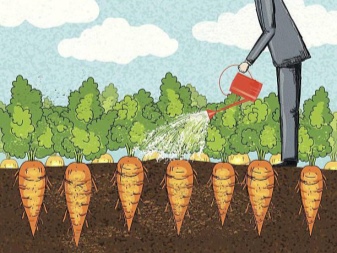
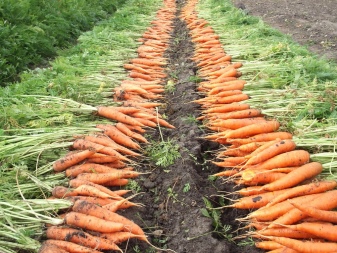
See the video below for feeding carrots.













The comment was sent successfully.